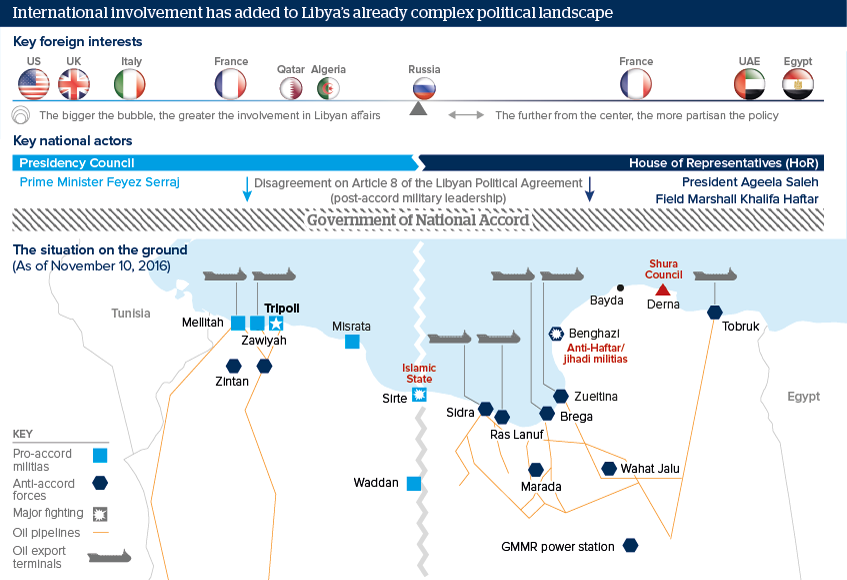Libya conflict hangs in the balance
The fate of Libya turns on the conflicting interests of foreign and domestic actors
Source: Media reports, Oxford Analytica
Outlook
Foreign states support opposing sides of the conflict. Egypt and the United Arab Emirates (UAE) back Field Marshall Khalifa Haftar and the House of Representatives. They believe this bloc will prevent political Islamists from gaining control of the country. The United Kingdom, Italy and the United States back the UN-brokered Presidency Council led by Prime Minister Fayez el-Serraj. They believe that a united Libya that includes political Islamists would offer the best hope of stopping migration and terrorist groups.
However, the Presidency Council has been ineffective and has failed to garner widespread support among Libyans. It has also failed to address key grievances from the east. Without more coordinated international efforts pushing for earnest negotiations, especially on militias, the Libya conflict could worsen.
Impacts
- Once Misratan militias defeat Islamic State, there will be no buffer between their opponents in the east.
- This could open the way for a direct collision with Haftar's forces, with potentially disastrous effects on the oil infrastructure.
- US President-elect Donald Trump might wish to distance himself from the previous administration's policies once in office.
- This could alter the Libyan balance of power, and tip the scales in favour of Haftar.
See also
- Disjointed initiatives to hobble Libya peace progress - Sep 22, 2017
- Competing Libya dialogues could deepen divisions - Jan 20, 2017
- Rivalries may cap Libya's oil export potential - Nov 22, 2016
- Regional fears of jihadists prolong Libya conflict - Jul 7, 2016
- More graphic analysis
